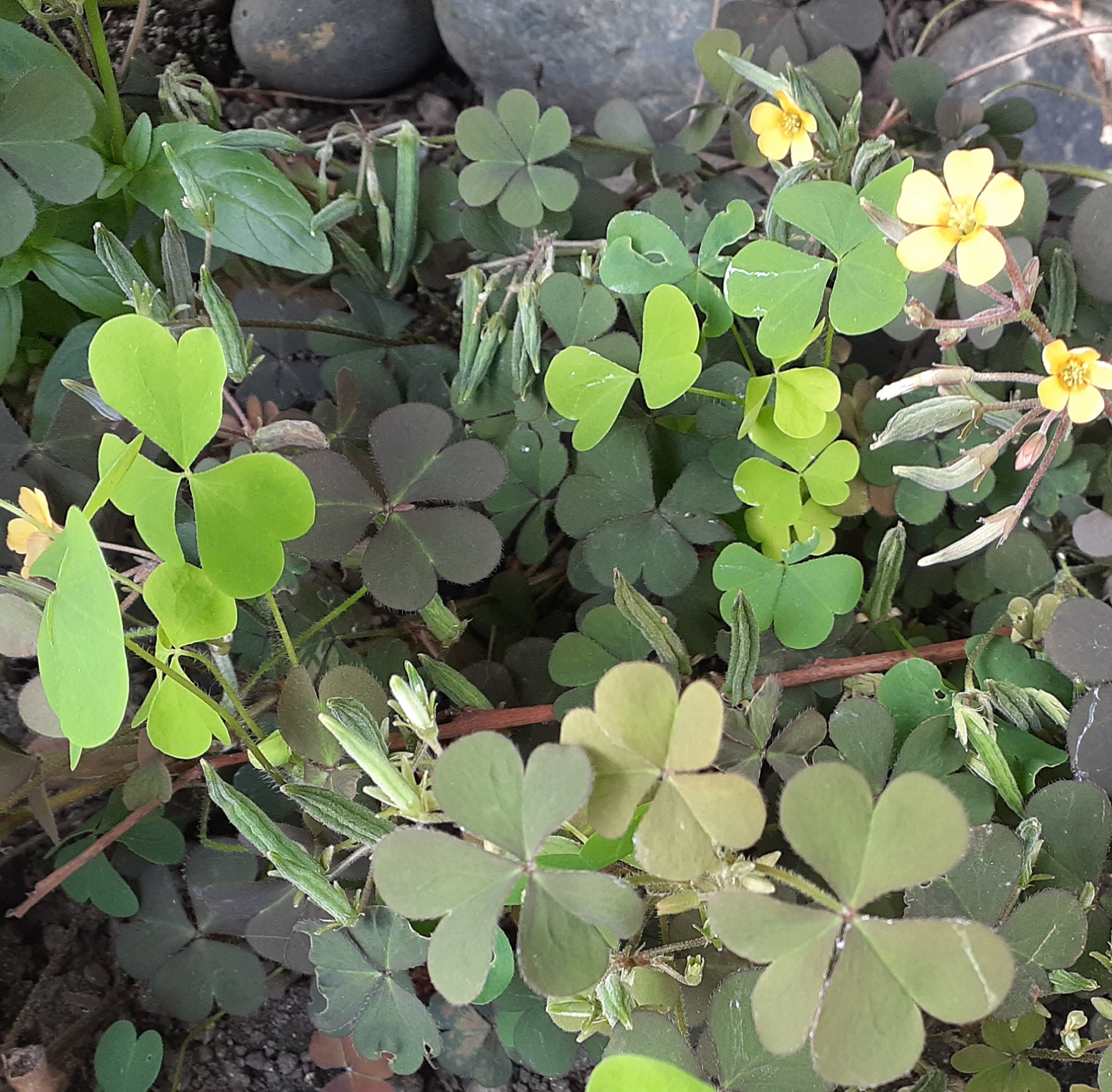With small multicolored heart-shaped leaves and tiny yellow flowers, spreading across any open soil, for years I thought of this plant as a useless weed. At best, it helped hold water in the soil between my other plants.
But this impressive little plant exists around the world, in nearly every country. And it’s edible!
It has a delightful lemon/citrus flavor and goes great in salads as a supplementary green, or just snacking on in the garden as you work.
Most sorrels contain oxalates/oxalic acid, which may be a health concern for some. As far as I can tell, they’re perfectly safe for most people as part of a regular varied food intake unless your doctor told you otherwise.
Also known as: creeping wood sorrel
Oxalis corniculata
Origin: Asia (according to recent research)

Identification Notes
- three heart-shaped leaves arranged on the tips of stems. the leaves may droop down or stick out from the stem, and typically grow at ground level or only an inch or two high. leaves may be brown, red, yellow, or green in appearance.
- small yellow flowers starting in May or so
- may co-occur with other edible plants (e.g., chickweed) or inedible/toxic plants (e.g., spurges), so be careful when harvesting
- similar in appearance to other types of Oxalis, including O. dillenni, O. florida, and O. stricta



Pingback: Lambsquarters – An Edible Green, Not Dangerous - Never Buy Rosemary